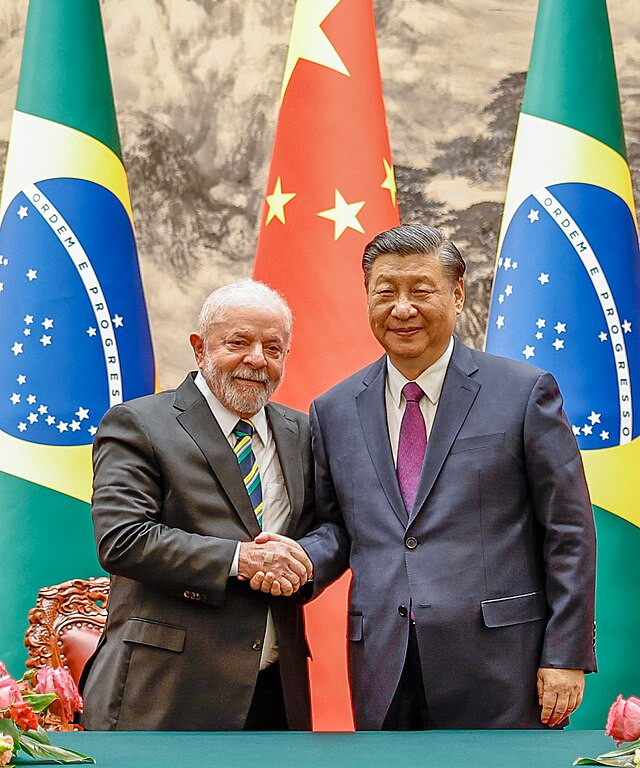Brazilian President Luiz Inácio Lula da Silva and Chinese President Xi Jinping took significant steps to deepen their nations' relationship by signing nearly 40 agreements during Xi's visit to Brasília. The deals, which span trade, technology, and environmental protection, underscore a growing partnership between the two major players in the BRICS bloc.
"This is another historic moment in the development of China-Brazil relations," Xi said, emphasizing China's readiness to foster a stronger bilateral partnership. Xi characterized the collaboration as a step toward making the two nations "golden partners."
Lula hosted Xi with a full ceremonial welcome, including a military brass band, horse-mounted guards, and schoolchildren waving Brazilian and Chinese flags. The diplomatic pageantry highlighted the importance of the agreements, which aim to align Brazil's developmental strategies, such as the Growth Acceleration Program, with China's Belt and Road Initiative. While Brazil has not formally joined the BRI, Xi echoed the language of partnership, saying both countries would "establish synergies" between their respective plans.
China is Brazil's largest trading partner, with bilateral trade surpassing $160 billion last year. Brazil exports mainly agricultural products such as soybeans, while China supplies semiconductors, vehicles, and medicines. These agreements are expected to expand economic collaboration and facilitate investments in Brazil's infrastructure and industrial development.
The timing of the meeting underscores a broader shift in Brazil's foreign policy. Lula, who assumed office in early 2023 after the divisive tenure of Jair Bolsonaro, has sought to recalibrate Brazil's international relationships. Analysts suggest that Lula is pursuing a pragmatic approach to global geopolitics by maintaining ties with Washington while strengthening partnerships with Beijing and Moscow.
Xi's visit followed his attendance at the G20 summit in Rio de Janeiro, where his prominent role contrasted with outgoing U.S. President Joe Biden's absence from key moments, including the leaders' group photo. The White House attributed Biden's absence to "logistical reasons." Observers note that Xi's visibility on the global stage underscores China's growing influence, particularly in Latin America.
Washington has expressed concerns about Brazil's closer alignment with China. U.S. Trade Representative Katherine Tai recently cautioned Brazil against deepening its engagement with the Belt and Road Initiative, citing potential risks. Such concerns are likely to grow under President-elect Donald Trump, who has advocated a confrontational stance toward Beijing and proposed tariffs as high as 60% on Chinese imports.
Despite these tensions, Lula has been clear in his intent to leverage China's economic resources to advance Brazil's development. The agreements signed during Xi's visit reflect an ambition to diversify Brazil's economic base, moving beyond its reliance on commodities. The collaboration also includes measures to promote environmental sustainability, signaling a commitment to green development.






